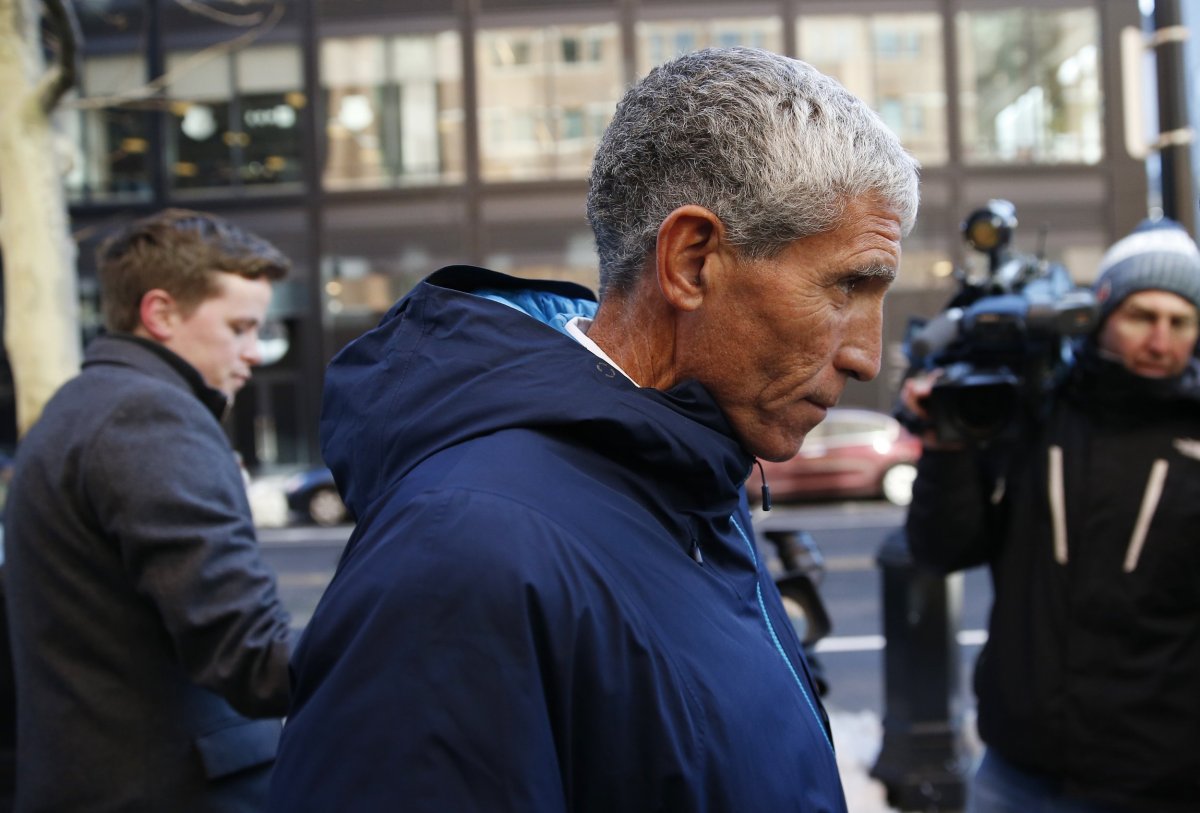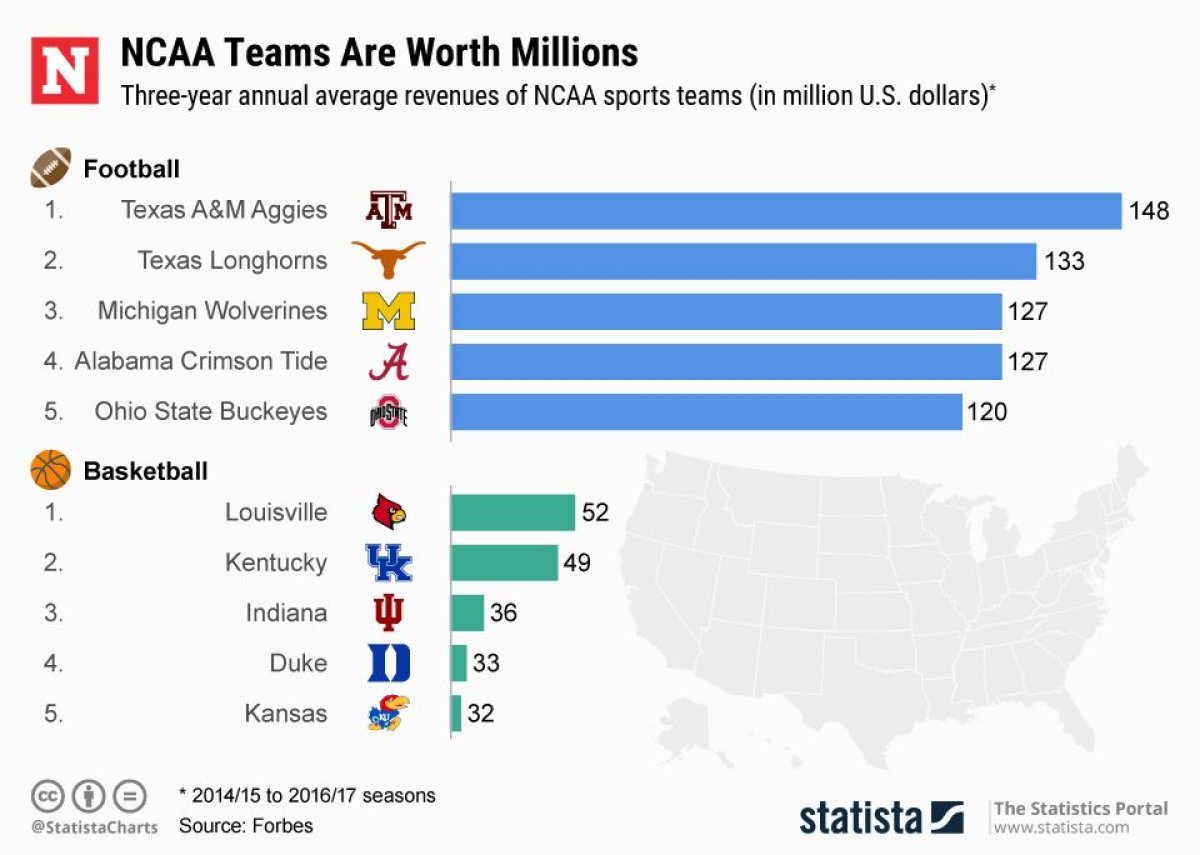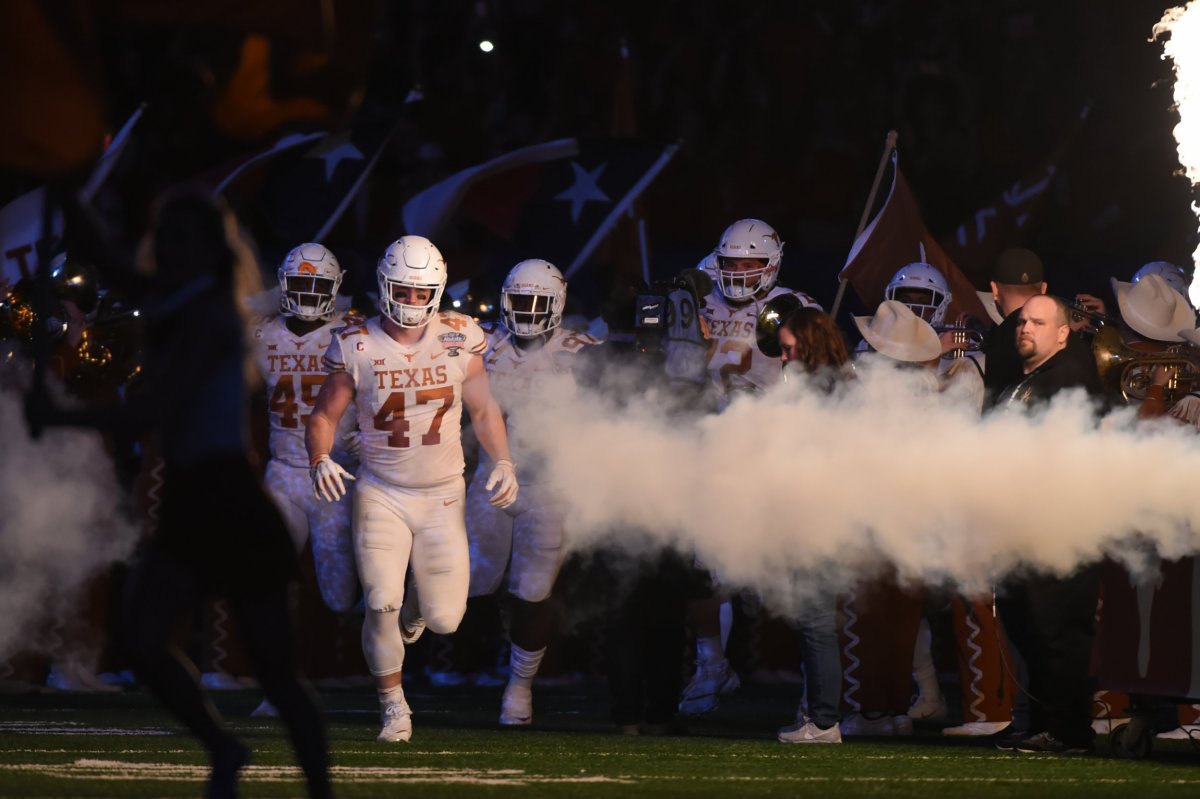The admissions scandal that has rocked top universities in the U.S. put the spotlight on one of college sports' most delicate and longest-standing issues: its relationship with race and money.
The two factors are often inextricably intertwined in the world of collegiate sports. The bribery scandal uncovered by Operation Varsity Blues, however, underlines just how toxic the connection between the two is when elite universities recruit students as athletes, regardless of their athletic abilities.
"For black male student-athletes to be given special consideration in admissions processes at elite universities, they actually have to be athletically exceptional," Shaun Harper, a professor and executive director of the University of Southern California's Race and Equity Center, told Newsweek. "Apparently, that is not the case for rich, mostly white kids who don't even play sports. The message is that wealth and privilege outweigh hard work and talent."
Launched by the Justice Department almost a year ago, the FBI investigation also found that a number of wealthy parents paid hefty sums to an admission consultant, who in turn paid people to take tests for their children.
Full House actress Lori Loughlin and Desperate Housewives star Felicity Huffman were among the 50 defendants named last month by U.S. Attorney Andrew Lelling.
Last week, the mastermind behind the scheme, William "Rick" Singer, pleaded guilty to charges of racketeering conspiracy, money laundering conspiracy, conspiracy to defraud the United States and obstruction of justice.
Through his company, the Key, Singer was reportedly paid a combined $25 million over the past eight years. During that period, he helped to get the kids of wealthy families into some of the top universities in the country, including Wake Forest, Georgetown, Stanford, the University of Texas and the University of Southern California.

Before asking SAT and ACT administrators for an extended period of time for their children to take the exams, the parents falsely claimed their children suffered from learning disabilities. The final stage of the scheme included having a person take the exams for the children or providing them with the correct answers during the test.
Payments to coaches and university administrators then helped students get accepted as athletes by elite universities. UCLA men's soccer coach Jorge Salcedo, former Georgetown tennis coach Gordie Ernst and former Yale women's soccer coach Rudy Meredith are among the coaches accused of taking bribes.
The scandal is symptomatic of the NCAA's relationship with money and highlights a series of flaws in its structure.
"Letting rich, mostly white people take advantage of athletes and athletics is kind of what the NCAA is all about," Andy Schwarz, a partner at litigation company OSKR, told Newsweek.
"There are whole chapters of the NCAA manual dedicated to spelling out how schools must restrict the benefits they provide to athletes. The NCAA exists to ensure schools are not paying too much for athletes, not to prevent schools from charging students, real athletes or fake athletes," he said.
If the process of recruiting students as athletes regardless of their abilities is obviously morally dubious, its impact on those who generate the lion's share of revenue for university teams is much more serious. According to NCAA data, almost half of football players at the so-called Power 5 conferences—ACC, SEC, Big 10, Big 12 and Pac-12—are black. In basketball, the number rises to 55 percent.
By contrast, sports such as water polo are predominantly white—82 percent of male players across Power 5 schools, according to NCAA figures—but are often subsidized by the money generated by basketball and football.
Data disclosed by federal authorities during the investigation showed that 90 percent of the revenue attributable to a University of Texas team in the 2017-18 financial year came from football and basketball. The Longhorns, which last year were named by Forbes as college football's second-most valuable team, generated $143 million in revenue in that period.
To put things into context, that accounted for 79 percent of the total revenue generated by the university's teams. Aside from football and basketball, no other team generated any revenue over the financial year.
The graphic below, provided by Statista, shows the value of NCAA football and basketball teams.

"Given black male student-athletes' overrepresentation in college football and basketball, their unpaid labor incontestably helps finance sports that are primarily comprised of white student-athletes," Harper said. "This is economic exploitation, especially considering the low rates at which universities graduate black men who play on the two major revenue-generating sports teams."

From an athletic standpoint, the scandal also underlined the overall importance of athletics in the university, which is reflected in the overall degree of advantage accorded to recruited athletes. Moreover, it highlighted the power and autonomy of coaches in the overall admissions process.
In the current NCAA system, athletic directors at the top Division I schools tend to treat all of their sports relatively equally and demand the same from the universities and their admissions offices. Specifically, most athletic directors are determined to avoid a situation in which only the football and basketball coaches get their recruited athletes but other sports don't.
The NCAA produced nearly $1.1 billion in annual revenue from college sports in 2017, more than the estimated total league revenues of both the NBA and NHL. Yet a substantial share of college sports' revenue remains in the hands of a selected few, and collegiate athletes remain unpaid.
It has long been suggested the system should be reformed, beginning with creating a resource cap on college athletic programs and redirecting the wealth to where it counts—the student athletes and the institutions they represent.
David Karen, a professor of sociology at Bryn Mawr College, said that disconnecting the revenue-producing sports from university admissions is a long overdue change.
"Let the coaches recruit players, independent of how the students look to the admissions committee," he said. "The players would play for the university team and wouldn't be students at the university. We could then also discard the amateur label and pay the athletes."
Karen added that the NCAA should follow the example of the professional U.S. leagues and introduce a system—such as a salary cap or a luxury tax—to level the playing field. Enrolling a diverse class—by race and socioeconomic status—should also be a high priority, he said.
Not that he is hopeful of seeing changes being implemented anytime soon—at least not from an athletic perspective.
"The NCAA's money is driving the whole system," he explained. "And unless colleges and universities collectively agree to eliminate the massive athletic advantage in admissions, it will not be fixed."
Schwarz agrees, suggesting that schools are not going to "stop letting rich people in" if their parents contribute financially to the institution.
"Most schools are not going to stop reserving easier admissions for people not requesting financial aid," he said. "Rich person affirmative action will continue. Schools will just take efforts to stop this one flavor of it, perhaps in part because it allowed intermediaries to take too large of a slice."
This article was updated to include the Statista graphic.
Uncommon Knowledge
Newsweek is committed to challenging conventional wisdom and finding connections in the search for common ground.
Newsweek is committed to challenging conventional wisdom and finding connections in the search for common ground.
About the writer
Dan Cancian is currently a reporter for Newsweek based in London, England. Prior to joining Newsweek in January 2018, he ... Read more
To read how Newsweek uses AI as a newsroom tool, Click here.








